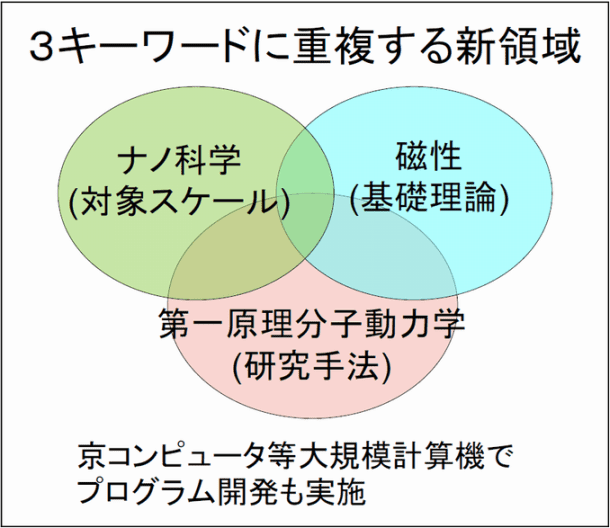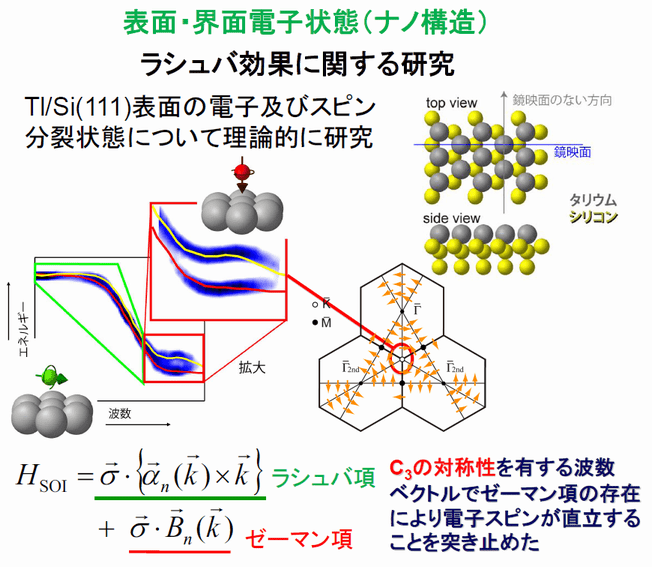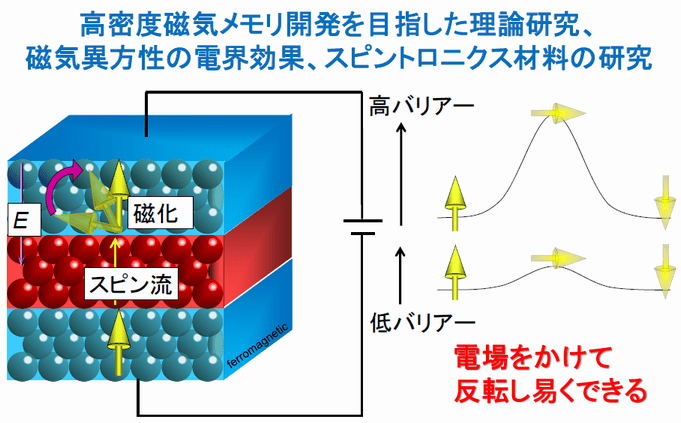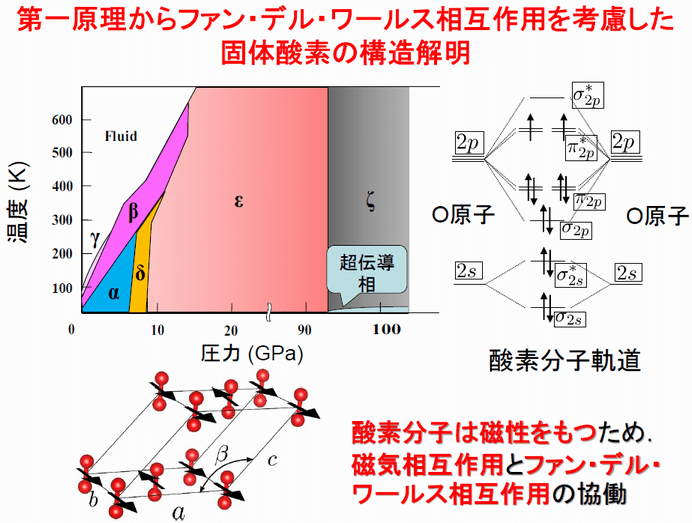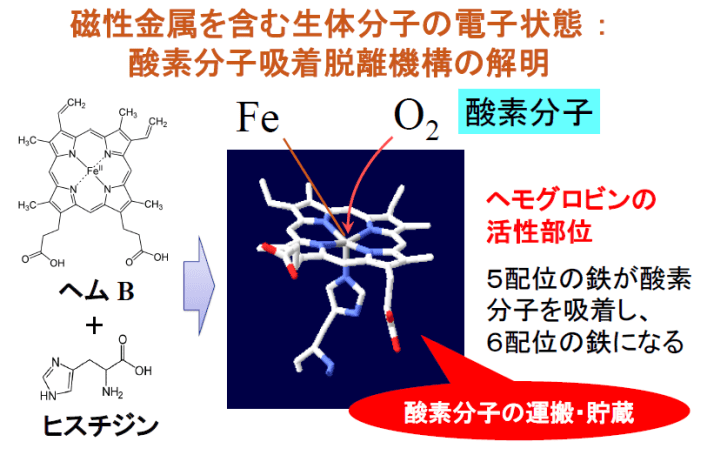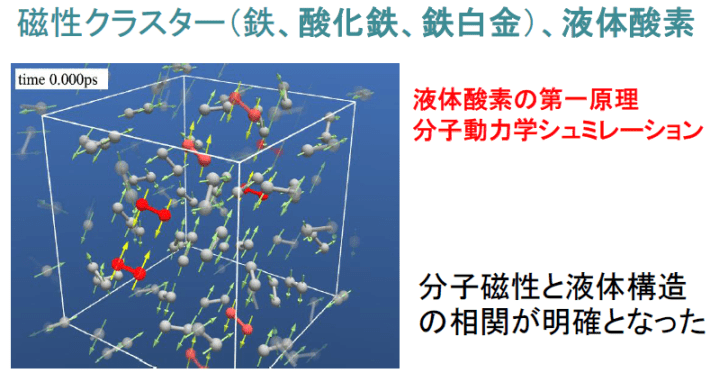Prof. Oda’s Group
Research Activities
Prof. Oda’s Laboratory is devoted to the studies on Theoretical Material Physics and Computational Material Science. In the laboratory, though we may perform the various topics in the sciences, currently, the subjects in the intersecting field among the three key words of Nanoscience (the scale of target systems), Magnetism (the basic theory), and First-Principles Molecular Dynamics (the researching method), are mainly studied.
To contribute the human society (the applications to industry), the laboratory devotes our activity to clarifying the basic physics for the next generation of electronics (spin electronics = spintronics). We investigate the material search for spintronics using the potentials of computers, for example, the search of magnetic materials.
In our laboratory, elucidation of natural phenomena is the primary important long-standing theme. Using the Theoretical Material Physics, Computational Physics, and Computer effectively, we elucidate the natural phenomena. Concerned with the Research Work of students, we recommend them the themes, based on the strong points that our laboratory is proud of; mostly, for examples, those in the intersectional category among the three fields shown in the figure of set.
The main weight of student’s learning becomes research work from the lecture course as the degree proceeds to graduate level from undergraduate level. The research activity provides a good training field, as well as the field of academic progress, for the student who is going to learn the ability of solving new problems. Making efforts in these fields and achieving results are strong evidences, so that the students have learned abilities available in social life.
When one wants to carry out a sort of advanced researches, he needs his own method and its development for getting it. In our laboratory, we develop and implement a new program (programing) when it is responsible to the new computation. We also make efforts on visualization of calculation results. In particular, developments for the high performance computing and high speed computing are welcome as an important theme in the laboratory, for example, programing using parallelization on computation.
Research Field: Theoretical Material Physics, Computational Material Physics
- Firt-Principles Molecular Dynamics (in non-magnetic and magnetic materials),
- magnetic clusters (ion, oxide ion, platinum ion)
- Liquid Oxygen
- First-Principles Electronic Structure Calculation
- Material properties under extreme condition (extreme high pressure)
- Structural Phase Transition, Solid Oxygen
- Superconductivity
- Carbon Nanotube
- Magnetic anisotropy (Nano-scale Magnetism)
- Surface Electronic Structure (Nano-Structural Surface)
- Rashba Effect
- Theoretical Approach to Magnetic Anisotropy
- Magnetic Anisotropy of Nano-Structure
- Study on electric field control in magnetic anisotropy
- Study on spintronic material directed to the development of high density magnetic memory
- Van der Waals interaction
- Tight-binding molecular dynamics
- Order n method
- Carbon Nanotube
- Electronic Structure of the bio-molecule containing transition metal (magnetism)
- Theory on Magnetism
- Phase Transition
- Development of Computational Code
- Parallel Computation, Massive parallelized Computation, Large Scale Computation, MPI parallelization
- Visualization
- Making the Movie of molecular dynamics


